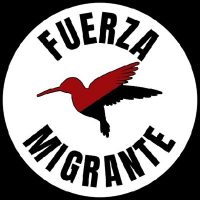Building Resilient Food Systems During COVID-19 and Beyond
Essential Labour, Essential Lives: Migrant Agricultural Workers and COVID-19
The COVID-19 pandemic has reshaped many Canadians’ understanding of essential labour. Now, more than ever, it is undeniable that undocumented and migrant workers form the backbone of our economy. At the same time, migrant workers in the agricultural and food processing sectors are being denied access to basic rights and protections, and are contracting COVID-19 at alarming rates. If migrant labour is essential, why not migrant lives? Join our panel of community organizers and researchers for an exploration of the barriers facing migrant workers, and the protections that are required to ensure their health, safety and dignity.
La pandemia de la COVID-19 ha modificado la forma en la que muchos canadienses entienden el trabajo esencial. Ahora, más que nunca, es innegable que los trabajadores indocumentados y migrantes forman la columna vertebral de nuestra economía. A su vez, a los trabajadores migrantes de los sectores de la agricultura y de la elaboración de alimentos, se les niega el acceso a derechos y protecciones básicas, y contraen COVID-19 a una velocidad alarmante. Si la mano de obra migrante es considerada trabajo esencial, ¿Por qué no así la vida de los migrantes? Los invitamos a unirse a nuestro panel con organizadores comunitarios e investigadores para explorar las barreras a las que se enfrentan los trabajadores migrantes y la protección que necesitan para garantizar su salud, seguridad y dignidad.
We received several thoughtful questions from the audience during this webinar, many of which the presenters didn’t have time to answer live. Click here to read their answers in our Q&A Roundup blog!
About the Presenters

Fuerza Migrante
Fuerza Migrante (previously Migrant Workers’ Dignity Association, MWDA) is an organization dedicated to fighting exploitation and injustice by building autonomous migrant power from below, through mutual aid and communal self-defense. Our struggle is multi-dimensional, understanding that ending capitalist exploitation is impossible without directly confronting all forms of oppression (particularly gendered as most migrant farm workers identify as male) and the theft of territories by colonizers. By pooling our skills and resources together we aim to transform the world and be part of the struggles for migrant liberation in the stolen lands incorrectly understood as “Canada” and throughout the world.

Min Sook Lee
Min Sook Lee has directed numerous critically-acclaimed feature documentaries, including: Donald Brittain Gemini winner Tiger Spirit, Hot Docs Best Canadian Feature winner Hogtown, Gemini nominated El Contrato and Canadian Screen Award winner, The Real Inglorious Bastards. Lee is a recipient of numerous awards, including the Cesar E. Chavez Black Eagle Award, and the Alanis Obomsawin Award for Commitment to Community and Resistance. Canada’s oldest labour arts festival, Mayworks, has named the Min Sook Lee Labour Arts Award in her honour. Lee’s most recent feature, Migrant Dreams tells the undertold story of migrant workers struggling against Canada’s Temporary Foreign Worker Program (TFWP) that treats foreign workers as modern-day indentured labourers. In 2017, Migrant Dreams was awarded Best Labour Documentary by the Canadian Journalists Association and garnered the prestigious Canadian Hillman Prize which honours journalists whose work identifies important social and economic issues in Canada. Lee is an Associate Professor at OCAD University, her area of research and practice focuses on the critical intersections of art+social change in labour, border politics, migration and social justice movements.

Anelyse Weiler
Anelyse Weiler is an Assistant Professor of Sociology at the University of Victoria. Her research explores the convergence of social inequalities and environmental crises in the food system, with a focus on struggles for migrant justice and decent work across the food chain. She actively contributes to several organizations advocating for food security, dignified employment, and migrant rights. Anelyse is a graduate of the Global Resource Systems program in the Faculty of Land and Food Systems and a previous Communications Coordinator at the CSFS.

Susanna Klassen
Susanna Klassen is a PhD Candidate at the Institute for Resources, Environment and Sustainability, and a research associate with the Centre for Sustainable Food Systems at UBC. Her research looks at policy and governance interventions to improve food system sustainability, with a focus on organic certification and the relationship between agroecological diversification and job quality in organic agriculture. She works at the intersection of scholarship and activism through her engagement with several food systems organizations, including as Vice Chair of Food Secure Canada. Susanna is from German Mennonite heritage, and grew up as a settler in Treaty 4 Territory. She is currently a visiting scholar at Colorado State University, in the traditional and ancestral homelands of the Arapaho, Cheyenne and Ute Nations and peoples.
The Building Resilient Food Systems During COVID-19 and Beyond series is brought to you by the Centre for Sustainable Food Systems (CSFS), the BC Food Web, the Faculty of Land and Food Systems (LFS), and the Royal Bank of Canada. This webinar series focuses on answering fundamental questions about the resiliency of our food system during and beyond COVID-19.


